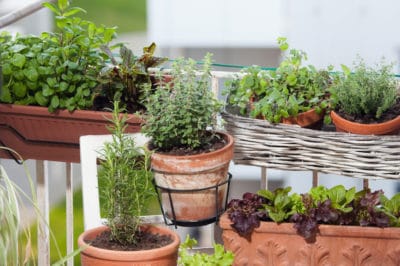The right substrate for every herb
It is best to use commercially available herbal soil for pot culture. Normal potting soil is already fertilized and is too nutrient-rich for most herbs. This is most suitable for demanding herbs such as mint, parsley, and chives. However, you can also lose weight with sand in a ratio of 2:1, in which case, ascetic species (e.g., those from the Mediterranean region) will also feel at home.
Make sure there’s good drainage… every time.
Whatever herbs you choose: All plant containers must have water-drainage holes — if necessary, simply drill them yourself. Plastic foil that lines baskets should have a few openings. Wet roots are deadly for most herbs. Therefore, place pots and buckets on blocks so that excess water can drain off. Pay particular attention to plantations in cachepots, which literally drown after downpours.
water and fertilize potted herbs regularly
Since the earth volume in the pot is limited, water and nutrients get used up more quickly. Regular watering is therefore an important maintenance task. Fertilisation, on the other hand, depends on the type of plant and on the substrate selected. If you freshly potted in spring, the stock fertiliser will last until summer. Demanding species can be fertilized every four weeks, starting in June, preferably with liquid fertilizer.
herbs in a pot hibernate properly
Enduring, frost-resistant herbs can also spend the winter outside in the tub. However, the small volume of soil in the pot freezes through quickly. For frost-prevention, place the containers on insulated polystyrene or wood and wrap them in bubble wrap, jute bags, or a leaf pack as an anti-freeze measure. Frost-sensitive species, such as rosemary and scented geraniums, can go inside the house[/link], cellar, or garage before the first sub-zero temperatures. The winter pitch should be cool, but bright and frost-free.
Hint
Herbs with long shoots, such as crawling thyme and oregano, thrive excellently in hanging baskets. This allows optimal usage of limited space on your balcony or terrace.
